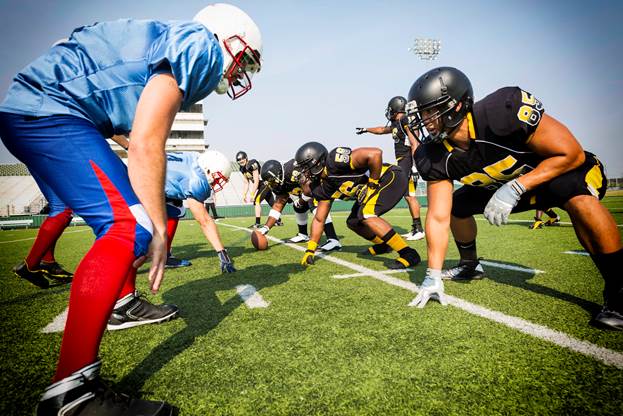
Taking Care of the Team
NJMS Physicians Treat the NFL and NHL
“When you’re at the game, you’re all on,” says Lewis Nelson, MD, Chair of the Department of Emergency Medicine, and one of three NJMS faculty who provide ice-side emergency care for the New Jersey Devils hockey team.
“At any moment, somebody could collapse, somebody could have a head injury. You have to be ready to go out and practice medicine in front of twenty thousand people.”
A few years ago, Nelson explains, there was an on-ice injury at an NHL game, and the league changed its rules to require an emergency physician be present at all games.
“The Devils asked NJMS to provide support because we’re a large academic medical center with a lot of good doctors,” Nelson says. “University Hospital is just over a mile from the Prudential Center,” where the Devils play their home games. “When there’s an emergency the player can be transported to our hospital by ambulance in just a few minutes.”
Nelson adds that while he and his colleagues don’t get called onto the ice very often, it’s always a nervous experience. “We’re in full view,” he says. “There are people sitting just inches off the ice. The players are tough, they don’t want to leave the game. They want to play despite broken bones and missing teeth. It can be a challenge to manage patient care with the public spectacle.”
Peter Hersh, MD, Professor in the Department of Ophthalmology and Visual Science, and Director of the Corneal Surgery Division, has been the team ophthalmologist for the New York Jets “since they moved to New Jersey around 10 years ago.”
“I wrote a book on eye trauma and also a number of papers on sports injuries to the eye,” Hersh says. “So we knew the field well.”
Better protective gear has led to fewer eye injuries in football, he adds, but, still, a finger through a facemask “can result in corneal abrasions and contusions. There can be trauma around the orbital area or even fractures.”
Hersh or his associates attend all ten Jets home games each season. “In sports ophthalmology we’re learning all the time about how to improve protection and prevent injuries,” he says. “I think that’s the most important thing for team doctors to do.”

